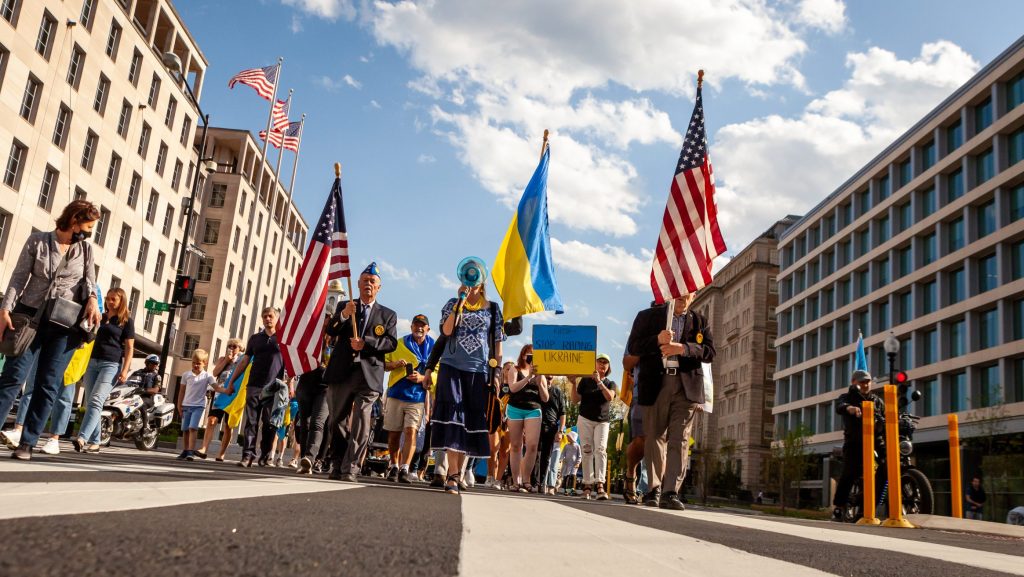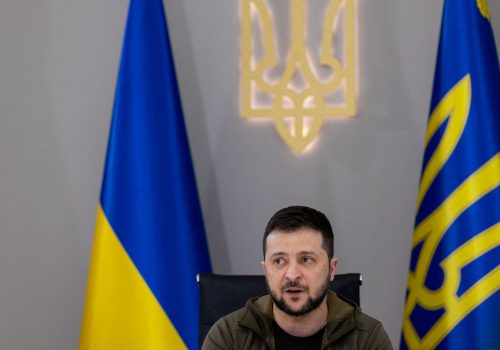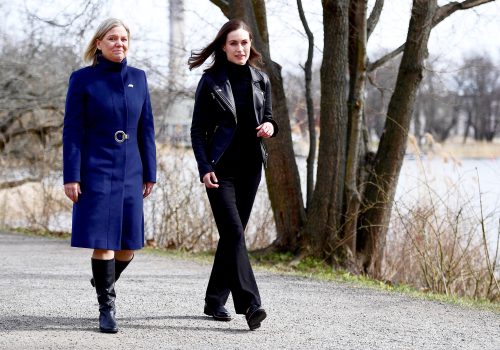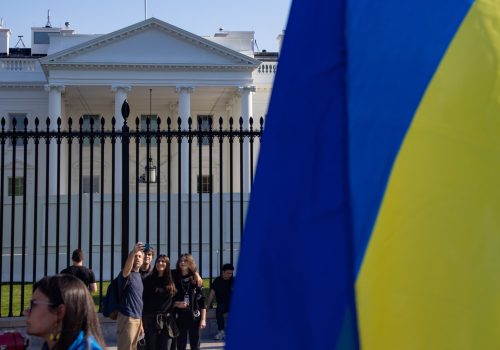Following the nomination of veteran diplomat Bridget Brink to fill the long-vacant post of US ambassador to Ukraine, John E. Herbst, who served in that role from 2003 to 2006, wrote an open letter to Brink with some advice for the difficult assignment ahead.
Dear Ambassador Brink,
Congratulations on your new ambassadorial appointment. It is a critical assignment at an historic time for which you are exceptionally well prepared. Work in the foreign service does not get more important or interesting than this. I am very jealous.
What the United States does at this juncture will have a critical bearing on the outcome of Russia’s war on Ukraine and on vital US interests in a stable, peaceful, and prosperous Europe. If the United States finally gets the policy right, it will also be an occasion to assert successful American leadership after two decades of failure in the greater Middle East. This would be a blow to autocracies worldwide and serve as a visible caution to the despots in Beijing with their predatory dreams in the Western Pacific.
It is good news that the Biden administration is now acknowledging that the US objective in Ukraine is to ensure a strategic failure for a revisionist Kremlin. If Ukrainian forces stop Vladimir Putin’s invaders from seizing any more territory and retake most of their gains, Putin will be hard-pressed to move on future targets, whether it be Moldova—as Russian General Rustam Minnekayev suggested last week—or NATO allies such as the Baltic states. That’s why what happens in Ukraine is critical for US interests.
If confirmed, from your post on the ground in Ukraine you’ll be able to give Washington an unflinching view of what Ukraine needs to defeat Kremlin aggression, a goal policy makers are now embracing. It will require upping the administration’s game both in supplying weapons to Kyiv and increasing sanctions on Moscow.
On the weapons side, it is good news that US arms packages approved in the past two weeks include long-range artillery, multiple launch rocket systems, and armored personnel carriers that Ukraine has needed for some time. But the United States is still, without good reason, holding back on the fighters, bombers, and longer-range drones that Ukraine desperately needs to deal with the Kremlin offensive in the open fields of eastern Ukraine. On the sanctions side, defeating Moscow means expediting an end to European purchases of oil and gas from Russia and removing all Russian banks from the SWIFT international payments system—or, failing that, at least imposing secondary sanctions on some Russian banks, which would make companies around the world wary of conducting business with Russia.
As an experienced ambassador, you understand that policy is made in Washington, not in the field. With an issue as hot as Ukraine, that means the most senior levels of the US government are involved in policy development and formulation each day. But you will have a unique contribution to make from Kyiv: Given Ukraine’s needs and the importance of American support, you will likely have daily access to the most senior levels of the Ukrainian government, as well as to the parliament. Your insights into what is happening in Ukrainian society and government—as well as the popular reaction to American initiatives and how US assistance can be most useful—will be read carefully by American policy makers and will shape what they do next.
Also, since yours will be an embassy in a war zone, it is essential that you have a first-rate Defense Attaché Office. Given the amount of US military assistance, it would make sense for you to have a senior officer in country with the responsibility of ensuring the timely delivery and distribution of that aid.
While the focus is now on helping Ukraine on the battlefield, the diplomacy of this war is never far from view. This is a State Department function, and your regional experience has prepared you well for this role. Of course, Putin has dismissed for now the possibility of a diplomatic settlement; and Russian war crimes have made it near impossible for any government of Ukraine to consider leaving any Ukrainian territory under the control of Kremlin forces. So now is not the time for negotiations.
But it is still time to think about an eventual settlement. As you know, President Volodymyr Zelenskyy, in discussing this, has asked for real guarantees of Ukraine’s sovereignty and territorial integrity—not the feckless assurances of the 1994 Budapest Memorandum that Ukraine received in exchange for giving up the third-largest nuclear weapons force on the planet. While Zelenskyy mentioned possible guarantees from numerous countries, it is in fact only a guarantee from the United States that matters. This is something for you—and Washington—to bear in mind as your Ukrainian interlocutors talk about the diplomacy of the war.
As chief of mission in Ukraine, you will also bear the responsibility of looking after your staff’s security, which is no small task in a city under Russian bombardment. You have my best wishes for your success in that too, even as we all recognize that diplomacy at times is a risky business.
Good luck and stay safe,
John
John E. Herbst is the senior director of the Atlantic Council’s Eurasia Center and a former US ambassador to Ukraine and Uzbekistan.
Further reading
Wed, Apr 6, 2022
Zelenskyy wants Ukraine to be ‘a big Israel.’ Here’s a road map.
New Atlanticist By Daniel B. Shapiro
By adapting their mindset to mirror aspects of Israel’s approach to security challenges, Ukrainian officials can tackle their own critical challenges with confidence.
Fri, Apr 15, 2022
Going Nordic: What NATO membership would mean for Finland and Sweden
New Atlanticist By
As both countries inch toward formally joining the Alliance, we answer six burning questions about what the future holds.
Sun, Apr 24, 2022
Biden should deploy ‘great arsenal of democracy’ to defend Ukraine
Inflection Points By Frederick Kempe
Today, FDR's message to President Joe Biden would be: Do more now to stop Vladimir Putin.
Image: Demonstrators in Washington, DC, march from the White House to the residence of the Russian ambassador to the United States during a protest against the war in Ukraine on April 16, 2022. Photo by Allison Bailey/NurPhoto/REUTERS



